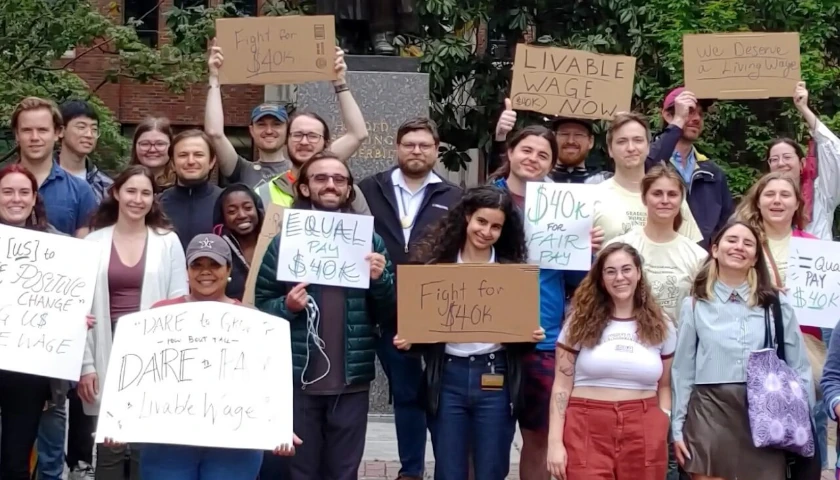by J.D. Davidson
Ohio Attorney General Dave Yost made good on a threat to sue the Columbus City Schools if it did not resume busing for school choice students.
Yost promised to sue earlier this week after the state’s largest school district eliminated busing for charter- and private-school students, notifying parents about two weeks before school began in August.
Yost followed through late Thursday night, announcing filing with the Ohio Supreme Court to force the school district to provide transportation for each family that requests mediation regarding bus service until the mediation is resolved.
Yost also wants the district to provide a list of students it deemed transportation as impractical.
“As a parent and grandparent, I understand the importance of making sure every child has a safe way to get to and from school,” Yost said. “These families have a right to choose what school is best for their child, and the law is clear that transportation is to be provided. The school board needs to comply with the law whether they agree with it or not.”
In a statement late Thursday, Columbus Superintendent Angela Chapman said the district continues to fight a nationwide bus driver shortage and established the same busing guidelines for private- and charter-school students as it did for public school students who go to a school outside their assigned district.
“The change was necessary, and has improved overall transportation for our students, but we could have made a stronger and more sensitive effort to communicate with the families that have been impacted,” Chapman said. “In hindsight, our outreach could have been more intentional, and our tone could have better reflected the gravity of the decision. Our efforts fell short in this way, and I apologize for the undue anxiety this has caused families.”
State law requires districts to provide transportation to all K-8 students who live more than 2 miles from their school. It also says a school can refuse to transport students if it’s found to be unreasonable or unnecessary or takes more than 30 minutes of direct travel time.
When it is impractical to transport a student, a board may offer payment to parents.
State law outlines six determining factors for districts to determine student transportation, including:
• The time and distance required to provide transportation.
• The number of pupils to be transported.
• The cost of providing transportation in terms of equipment, maintenance, personnel and administration.
• Whether similar or equivalent service is provided to other pupils eligible for transportation.
• Whether and to what extent the additional service unavoidably disrupts current transportation schedules.
• Whether other reimbursable types of transportation are available.
In its letter to parents, the district said those six factors were involved in making its decision.
The district did offer other options, including payment, to parents.
– – –
An Ohio native, J.D. Davidson is a veteran journalist with more than 30 years of experience in newspapers in Ohio, Georgia, Alabama and Texas. He has served as a reporter, editor, managing editor and publisher. Davidson is a regional editor for The Center Square.
Photo “Dave Yost” by Dave Yost. Background Photo “School Buses” by JohnPickenPhoto. CC BY 2.0.





